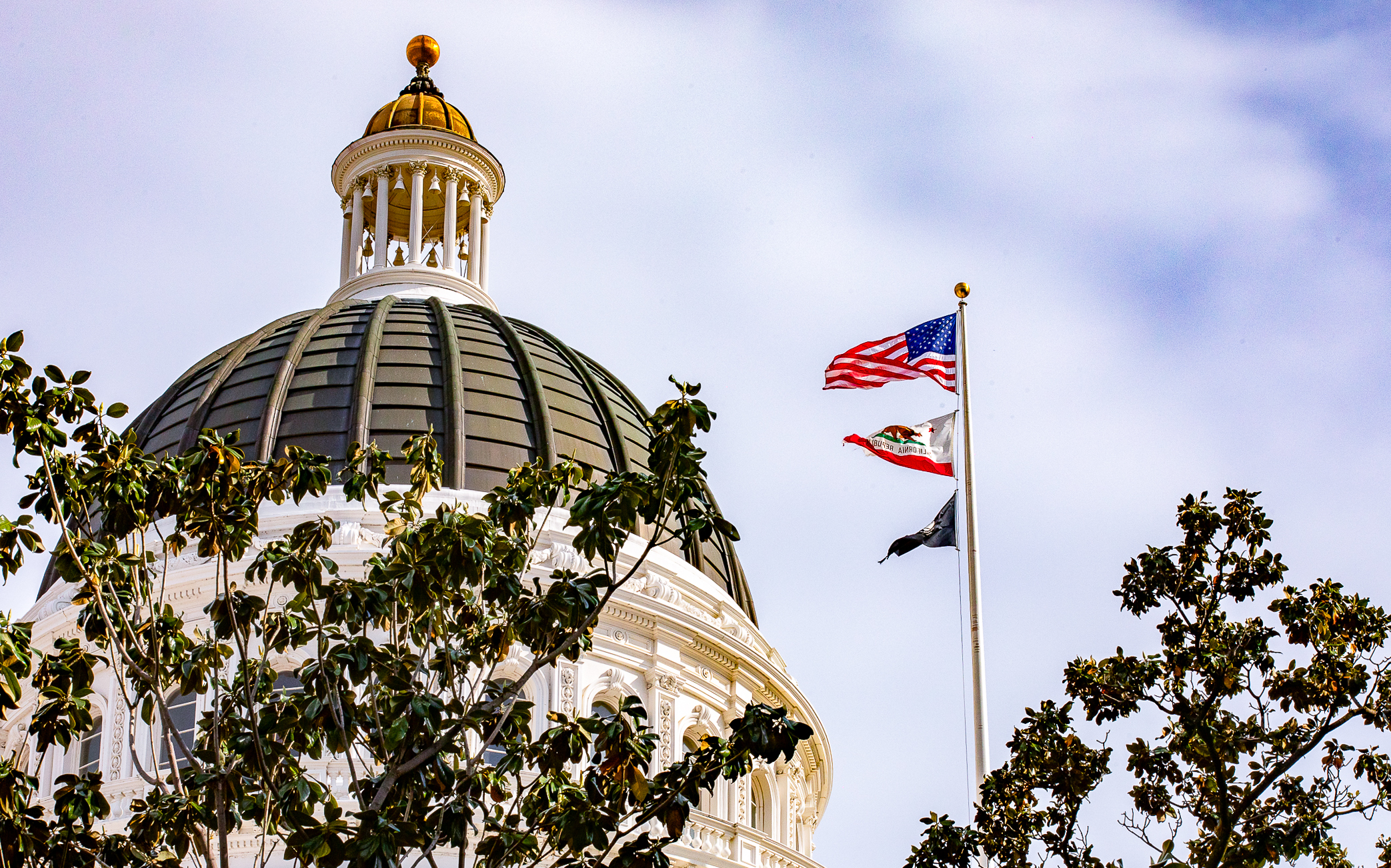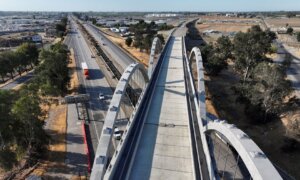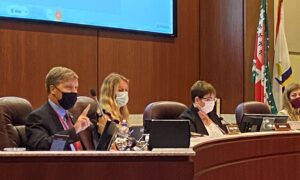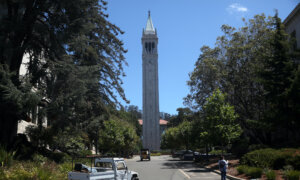After a last-minute adjustment to include reforms to housing and infrastructure demanded by Gov. Gavin Newsom, the California 2025 state budget has now been agreed to by the Legislature and was signed off by the governor on June 30.
The state budget for the 2025–2026 fiscal year, starting on July 1, amounts to $322 billion in total spending, while closing a $12 billion deficit and projecting a $21 billion structural deficit.
SB101, the main bill included in the budget, meanwhile, earmarks dollars for items such as diapers for newborns and a high-speed rail project, as well as other expenses.
The revised budget reallocates $1 billion per year through 2045 from the cap-and-trade program to fund the more than $100 billion high-speed rail project.
Meanwhile, $7.4 million will fund providing a three-month supply of diapers for newborns via the hospital system.
The budget also raises the California Film and Television Tax Credit Program by $420 million per year to $750 million annually through 2030. Studies by the Legislative Analyst’s Office have historically been mixed on how such film and television credits benefit the economy.
Meanwhile, $118.9 billion is allocated for Proposition 98 funding for K–14 education, and $100 million will go toward addressing homeless encampments.
To close the deficit, the budget withdraws $7.1 billion from the California Budget Stabilization Account (known as the rainy day fund), defers $1.88 billion in Proposition 98 funding for education, and $5 billion from internal loans and other temporary revenue measures.
It also maintains $15.4 billion in reserves, including $8.5 billion in the rainy day fund by the end of 2025–2026.
As part of his strategy to close the deficit, Newsom had also proposed cutting new Medi-Cal enrollment for illegal immigrants, as well as introducing $100 monthly premiums for those older than 18, beginning in 2027. The initiative would stop long-term care benefits, as well as dental coverage for noncitizens beginning in July 2026.
Assemblymember Diane Dixon, a Republican who represents Newport Beach, criticized the budget’s use of reserves to address the deficit.
“This budget bill also spends an additional $2.5 billion, reducing the rainy day fund,” Dixon said in a statement. “We should be able to create a balanced budget without spending down our reserves. Californians pay some of the highest taxes in the country, yet the data [show] we are struggling to successfully take care of the Californians that live here now.”
The budget projects a small $363 million surplus for the fiscal year.
Republicans also criticized the budget for earmarking only $100 million for Proposition 36, an anti-crime ballot initiative passed by voters in 2024.
Sen. Roger Niello, a Republican who represents Fair Oaks and is the vice chair of the Senate Budget and Fiscal Review Committee, criticized the budget for not prioritizing public safety.
“A budget is an expression of priorities,” he said. “It is encouraging to see legislative leadership prioritize higher education. However, the budget still does not fulfill the will of the voters who overwhelmingly supported Proposition 36,” he said in a statement.
Proposition 36 did not include a funding mechanism in the measure’s language nor a requirement for the state to provide funding to local governments for the substance abuse treatment outlined in the measure.
Ahead of the vote in 2024, Newsom spoke out against the measure, saying it represented a promise that could not be delivered.
“It’s about mass incarceration ... and it would increase costs to taxpayers,” Newsom said. “And it’s an initiative that can’t be reformed unless we go back to the voters.”
Republicans proposed amendments to Senate Bill 101, dedicating money to wildfire prevention, public safety, and Proposition 36 funding. But the amendments were not passed.
Republicans are not happy with the state legislators’ handling of the budget in general, according to a Public Policy Institute of California’s Statewide Survey: Californians And Their Government. Meanwhile, 75 percent see the budget as a big problem, while 47 percent of independents see the budget as a big problem, and 55 percent of Californians in general would prefer to pay lower taxes and enjoy fewer services.













